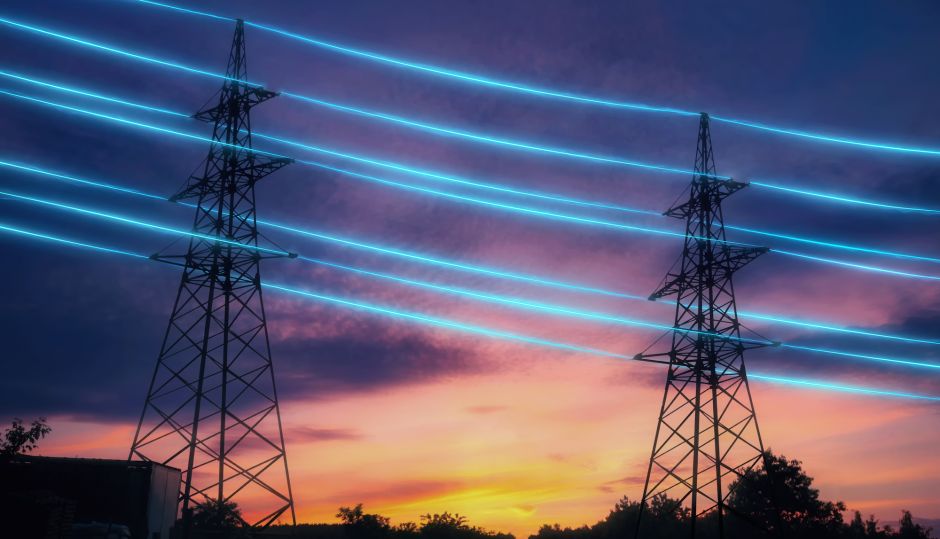Electrification Could Be Challenging for Shipping

The electrification of the transport sector is likely to lead to a significant decrease in the transportation of liquid fuels. This, in turn, implies reduced revenues for shipping companies and ports, according to a new report by Transport Analysis on the consequences of electrification.
Commissioned by the government, Transport Analysis has produced the report Storskalig elektrifiering av transportsektorn – ett kunskapsunderlag (Large-Scale Electrification of the Transport Sector – A Knowledge Base). Together with an additional report focused entirely on electric vehicles, it highlights the development of electric vehicles in Sweden and key issues to consider for the transition to an electrified transport system.
In its analyses, Transport Analysis has based its findings on Sweden’s climate policy goals, which target net-zero emissions by 2045. By then, charging infrastructure for passenger cars will be well-developed. The major challenge will thus lie in electrifying heavy road vehicles and significantly increasing the electrification of maritime and air transport. Specific policy measures to promote electrification in maritime and air transport may be necessary.
The report further highlights how the electrification of the transport system will require greater integration between the energy and transport sectors, which have previously operated separately. New markets and issues will arise, potentially leading to shifts in responsibilities for authorities and requiring flexibility in permitting and oversight processes. Skills development across all modes of transport and for alternative fuels will, of course, be critical, with education programs needing timely adaptation.
Implications for the Shipping Industry
What will this mean for shipping? Firstly, shipping is not expected to undergo electrification to the same extent as road traffic; by 2045, it is forecasted to rely primarily on other alternative fuels. However, the development of these fuels has not progressed nearly as far as the electrification of road transport. This means that road transport currently has a competitive advantage, which, according to Transport Analysis, could strengthen further if this pace of development continues—especially as shipping faces increased costs due to its inclusion in the EU Emissions Trading System (EU ETS).
Shipping could also be indirectly affected by the rapid electrification of road transport, which may lead to an equally rapid reduction in the flow of oil products—a key market for shipping. Transport Analysis notes, for example, that the flow of petroleum products refined in Sweden amounts to approximately 4 million tons annually. These 4 million tons constitute a third of the domestic maritime freight volume. Additionally, imports of petroleum products by sea amount to about 10 million tons annually, which are also distributed to varying extents.
Reduced transportation of fossil products also means lower revenue for the Swedish Maritime Administration from fairway and pilotage fees, while ports handling oil products may collect less in port fees. On the other hand, Transport Analysis notes, “there may be an increase in maritime transport of fossil-free fuels instead, such as biogas, hydrogen, and methanol. By 2045, there will likely still be a variety of ship types powered by different fuels. Therefore, infrastructure in ports will be needed for various types of fuel, including electricity and different kinds of liquid fuels, such as liquefied gases (like LBG, liquefied ammonia, or liquefied hydrogen). This parallel use of different fuels places greater demands on port logistics.”
-
 Ny studie: Eldrivna pendelbåtar kan effektivisera Stockholms kollektivtrafik
Ny studie: Eldrivna pendelbåtar kan effektivisera Stockholms kollektivtrafik -
 Sjöfartens utsläpp ökar
Sjöfartens utsläpp ökar -
 Sociala relationer påverkar val av bränsle
Sociala relationer påverkar val av bränsle -
 Sjöfartens omställning kräver ”mjukare” påtryckningar
Sjöfartens omställning kräver ”mjukare” påtryckningar -
 Hon hade avtalad tid med Kapten ynkrygg
Hon hade avtalad tid med Kapten ynkrygg -
 Lighthouse omvärldsanalys 2025 – osäkerhet och tullar präglar sjöfarten
Lighthouse omvärldsanalys 2025 – osäkerhet och tullar präglar sjöfarten -
 Se seminariet Shipping in the Marine Environment
Se seminariet Shipping in the Marine Environment -
 Vad betyder egentligen de 90 procenten?
Vad betyder egentligen de 90 procenten? -
 Hålla där...
Hålla där... -
 Ny rapport: Klimatförändringarna ett hot mot de flesta större hamnar i världen
Ny rapport: Klimatförändringarna ett hot mot de flesta större hamnar i världen

